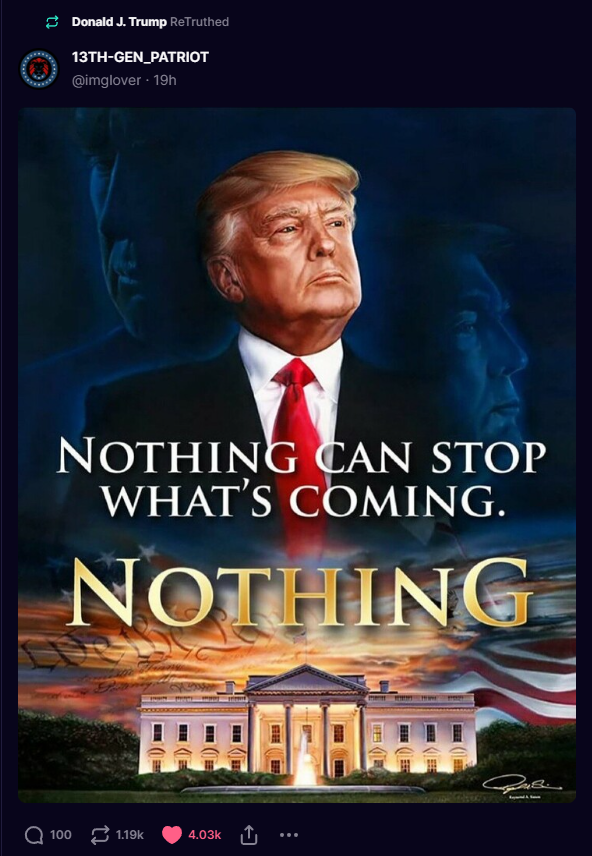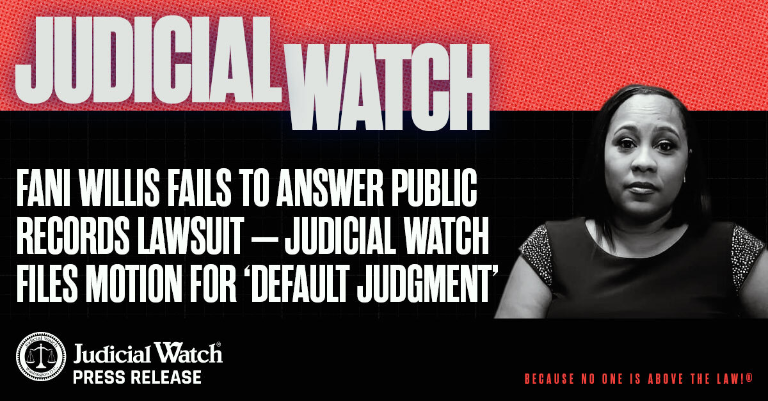Welcome to General Chat - GAW Community Area
This General Chat area started off as a place for people to talk about things that are off topic, however it has quickly evolved into a community and has become an integral part of the GAW experience for many of us.
Based on its evolving needs and plenty of user feedback, we are trying to bring some order and institute some rules. Please make sure you read these rules and participate in the spirit of this community.
Rules for General Chat
-
Be respectful to each other. This is of utmost importance, and comments may be removed if deemed not respectful.
-
Avoid long drawn out arguments. This should be a place to relax, not to waste your time needlessly.
-
Personal anecdotes, puzzles, cute pics/clips - everything welcome
-
Please do not spam at the top level. If you have a lot to post each day, try and post them all together in one top level comment
-
Try keep things light. If you are bringing in deep stuff, try not to go overboard.
-
Things that are clearly on-topic for this board should be posted as a separate post and not here (except if you are new and still getting the feel of this place)
-
If you find people violating these rules, deport them rather than start a argument here.
-
Feel free to give feedback as these rules are expected to keep evolving
In short, imagine this thread to be a local community hall where we all gather and chat daily. Please be respectful to others in the same way
Rules For the rest of the Site also accessible on the sidebar.








I decided to create a new thread on this topic, so it would not get buried in the other thread.
First off, it is blatantly false that the income tax was created to pay for World War 1.
The tax was passed in 1913. The war did not start until 1914, and the US did not get involved until 1917.
So, there is no evidence that it was created to pay for the war.
But it WAS passed in 1913, and just before the Federal Reserve Act, which was passed in the dead of night two days before Christmas.
Regarding the income tax, I decided to go to the ONLY official source of the original statute.
This is found at the Statutes at Large. The SAL are the chronological documentation of ALL bills passed by Congress, starting with the first one by the First Congress, and going through to the most recent one (that has been published -- they are behind a little of the SAL publications).
This is the ONLY official source for ANY statute passed by Congress.
Here is the SAL publication for the 63rd Congress in 1913:
https://tile.loc.gov/storage-services/service/ll/llsl//llsl-c63/llsl-c63.pdf
Now, regarding the income tax ... this is REALLY WEIRD:
It looks to me like there was never an official "Income Tax" passed by Congress.
Instead, it was a GENERAL tax, which covered hundreds of things to be taxed, and then the income tax was inserted WAY, WAY, WAY down and buried inside all the legalese of these other taxes.
Starting on page 114, you see under "Chapter 16," the words of introduction to this piece of legislation:
An Act To reduce tariff duties and to provide revenue for the Government and for other purposes
Notice: It does not say an act to impose an income tax. The purpose was to reduce tariff duties and provide revenue.
The next paragraph says:
... there shall be levied, collectd, and paid upon all articles when imported from any foreign country when imported into the United States or into any of its possessions the rates of duty which are by [the following rules].
Notice: There were certain ARTICLES (i.e. types of actions for which a tax would be levied), AND ... ONLY ... for IMPORTING something into the US or its possessions (territories).
This is CRUCIAL, because the federal government does NOT have ANY authority to pass GENERAL LEGISLATION WITHIN THE STATES, except for those items specifically enumerated in the Constitution. One of those enumerated powers if FOREIGN COMMERCE.
When YOU go to work at the office or factory, YOU are NOT engaging in foreign commerce. Only the companies and individuals who BRING FOREIGN GOODS INTO THE USA are engaged in foreign commerce.
So ... this was constitutional, as it was originally written (but NOT as it is currently implemented).
Next, it goes on to list HUNDREDS of "items" that would be subject to this new tax "to REDUCE tariffs and to provide revenue."
A few of these are taxes on:
(1) Boracic acid, citric acid, formic acid, and other acids.
(2) Acetic anhydrid.
(3) Acetone
(4) Dried egg albumin
(7) Ammonia
(10) Barium chloride
(12) Bleaching powder
(13) Caffein
(15) Chalk
(41) Lime citrate
(43) Menthol
(44) Oils of various types
(47) Opium
(68) Sponges
(69) Talcum
(84) Glass bottles
(93) Opera and field glasses
(106) Iron or steel anchors
(119) Automobiles, valued at $2,000 or more
(129) Sword blades, and swords and side arms
(136) Fish hooks, fishing rods and reels
(201) Pickles
(202) Cider
(213) Straw
(217) Apples and other fruits
(237) Brandy and other spirits
(243) Champagne
(300) Carpets
(305) Hair of the Angoran goat
(311) Silk
(351) Human hair
(354) Hats, bonnets, or hoods
(402) Arrowroot in its natural state
(403) Arsenic
(424) Books, engravings, photographs
(477) Drugs, such as barks, beans, berries, buds, bulbs ... [interesting that these were "drugs" back in 1913]
(500) Gum
(501) Gunpowder
(503) Hair of horse, cattle, and other animals
(602) Skeletons
(605) Soda
(614) Stone and sand
In all, there are a list of 657 items that would be considered "articles" for which a tax would be levied ... IF (and only if) ... they were IMPORTED INTO THE US OR FEDERAL TERRITORY ... because Congress had the constitutional authority to regulate FOREIGN COMMERCE.
Now, I will break it down even further, but keep in mind THESE IMPORTANT POINTS:
-
The way the statute was structured was that "Section I" would be a list of all these items that would be "articles" that could be taxed by this new legislation. (The words "Section I" is not there, but the next sections (Sections II, III, and IV) are, and that is very important. So, keep in mind how this statute was structured.
-
ALL of these items/articles are for FOREIGN COMMERCE by way of IMPORT under the foriegn commerce clause of the Constitution ... OR (also VERY important) ... for anything that has to do with these items/articles WITHIN THE FEDERAL TERRITORIES (Washington DC, Puerto Rico, Guam, etc.). ... but NOT the States.
-
The US federal government has TWO constitutional authorities: (1) the subjects that are ENUMERATED in the Constitution, and these apply within the States, such as post offices and foreign commerce, and (2) EXCLUSIVE JURISDICTION over everything that goes on WITHIN the federal territories (Washingon DC is treated like a State, in that the Congress is like the State legislature for that and the other federal territories).
Again, this all starts on page 114 of the 63rd Congress for 1913:
https://tile.loc.gov/storage-services/service/ll/llsl//llsl-c63/llsl-c63.pdf
NOW ...
At page 166, under "Section II," we have the "Income Tax," although it is NOT OFFICIALLY called that (there is merely a footnote in the margin).
Under Subdivsion 1:
That there shall be levied, assessed, levied and paid annually upon the entire net income ...
This is where they stuck in the "income tax" in the middle of a foreign commerce tax bill. Very sneaky and underhanded -- to say the least.
It then goes on to Section III, which once again goes back to amend a previous law about foreign commerce.
Section IV continues with the foreign commerce authority.
This was a MASSIVE piece of legislation, passed October 3, 1913.
I am not going to read through the entire thing, looking for the "this is only temporary" clause. I doubt it is there because, again, this was a MASSIVE piece of legislation.
I doubt more than a few members of Congress had any real idea what they were voting on.
It was the setup for the Federal Reserve Act, which was passed December 23, 1913.
There is ZERO chance that it was meant to be temporary, though I would not be suprised if the people behind the scenes who pushed both laws were planning on also pushing World War 1 on the Europeans, but the members of Congress probably had no clue (most of them), if that was the case.
Now ... let's dig further.
This legislation was all about taxes on (a) foreign commerce and (b) activities connected to the federal territories (such as Washington, DC).
Who was considered liable for the income tax?
Page 166, A. Subdivision 1:
... every citizen of the United States, whether residing at home or abroad, and to every person residing in the United States, though not a citizen thereof ...
Now, are YOU a "citizen of the United States?"
Let's set aside what that definition means in legal terms. If YOU state, and sign under penalty the truth of the statement, that YOU ARE a "citizen of the United States," then this law APPLIES TO YOU.
Abracadabra ... YOU have volunteered that YOU are one of these people subject to the tax.
This is WHY the US federal government constantly TRICKS you into claiming that you are a "citizen of the United States," because that pushes you into this box.
Checkmate.
Sort of.
That is WHO. But what about the WHAT?
WHAT exactly is taxed?
... a tax ... upon the entire net income from all property owned and of every business, trade, or profession carried on in the United States by persons residing elsewhere.
That was the original language, that is more or less similar to today's language, which we will explore, but first, let's talk about the US Supreme Court case that declared this statute as constitutional.
That was Brushaber v. Union Pacific Railroad (1916).
Frank Brushaber was a citizen of New York. He owned stock in Union Pacific Railroad, which was a FEDERAL CORPORATION, created by Congress to build the railroads.
He received a dividend, which is covered on page 167:
B. ... dividends ...
So, Frank challenged the income tax on his dividends, but SCOTUS ruled that he had to pay. The real reason for this is that the company paying the dividend was a federal corporation, and receiving a dividend from a federal corporation was a PRIVILEGE and not a right. Therefore, since the Congress created the corporation, it could tax the dividends paid.
But this has morphed into Congress taxing dividends from ALL (non-federal) corporations. BUT ... they have done so by subterfuge, not by honest legal means.
Let's go to the current "Income Tax Code" found at 26 USC, and look under Subtitle F, Chapter 79, "Definitions."
The original act said that an income tax would be imposed on NET income of every "citizen of the United States," and to every "business, trade, or profession" of non-citizens.
But what are these definitions?
https://www.law.cornell.edu/uscode/text/26/7701
(a)(30) United States Person:
(A) a citizen or resident of the United States
What is the definition of "United States?"
(a)(9) The term “United States” when used in a geographical sense includes only the States and the District of Columbia.
What is a "State?"
(a)(10) The term “State” shall be construed to include the District of Columbia, where such construction is necessary to carry out provisions of this title.
So ... this whole thing is ONLY for the things that the federal government has CONSTITUTIONAL AUTHORITY for: (a) foreign commerce and (b) exclusive legislation for FEDERAL TERRITORIES, and NOT that 50 States. They had to RE-DEFINE the word "State" to mean something OTHER THAN the 50 geographical States, in order to stay within the constitutional confines of the Constitution.
What is the definition of "Trade or Business?"
(a)(26) The term “trade or business” includes the performance of the functions of a public office.
AGAIN ... staying within the CONFINES OF THE CONSTITUTION.
The way the law is WRITTEN is constitutional. BUT ... it is not promoted the way it is written.
What is the definition of "employee?"
There is only a specialized definition in Subtitle F, and that only applies to something specific that does not apply to most people:
(a)(20) ... For the purpose of applying the provisions of section 79 with respect to group-term life insurance purchased for employees, for the purpose of applying the provisions of sections 104, 105, and 106 with respect to accident and health insurance or accident and health plans, and for the purpose of applying the provisions of subtitle A with respect to contributions to or under a stock bonus, pension, profit-sharing, or annuity plan, and with respect to distributions under such a plan, or by a trust forming part of such a plan, and for purposes of applying section 125 with respect to cafeteria plans, the term “employee” shall include a full-time life insurance salesman who is considered an employee for the purpose of chapter 21.
That is the only definition of "employee" found in Subtitle F.
But ... the definitions in Subtitle F apply to ALL of Title 26 ... UNLESS ... a different definition is found elsewhere that applies more specifically to a particular section of Title 26.
So, let's look at Subtitle C, "Employment Taxes" --
https://www.law.cornell.edu/uscode/text/26/subtitle-C
Notice: There are are 6 chapters within Subtitle C.
The employment taxes are collected by the employer, right?
Chapter 24 -- Collection of Income Tax at Sourse on Wages, Section 3401 ("Definitions"):
What is "Employee?"
(c) Employee. For purposes of this chapter, the term “employee” includes an officer, employee, or elected official of the United States, a State, or any political subdivision thereof, or the District of Columbia, or any agency or instrumentality of any one or more of the foregoing. The term “employee” also includes an officer of a corporation.
So, elected officials of the United States or "a State" (which means Washington DC and federal territories, based on general definitions, and constitutional prohibition from the federal government taxing the States, other than via apportionment), any AGENCY OR INSTRUMENTALITY of Washington, DC, such as Union Pacific Railorad, or Fannie Mae (Federal National Mortgage Association), a corporation created by Congress for buying mortgages, or an officer of such a corporation.
What you will find about the income tax is that it was originally passed as part of a tax bill for foreign commerce and taxes related to the operations of the federal territories, and the modern day definitions still agree with this concept ... BUT ... it has since been fraudulently promoted and unconstitutionally applied and enforced by the Internal Revenue Service, which is NOT a federal agency and its agents are NOT federal employees.
It is a clever con game.
Do I file tax returns? Yes, because I understand the game and I know where to find the "hidden" aspects that are often only found in the federal regulations and only hinted at in the actual statute or code.
But we would all be better off if we just got rid of it, along with the privately owned (and more important: privately controlled) central bank, which has never had a meaningful public audit of what it REALLY does with all of its fake money creation.








































